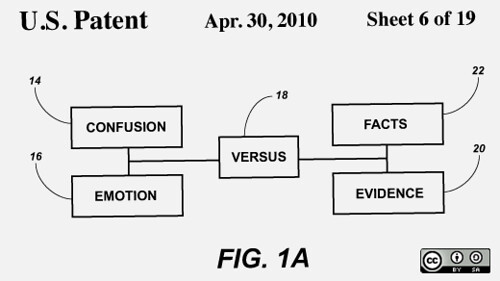An interesting opinion was recently issued by the Federal Circuit concerning how to draft patent claims and the importance of the words used. See Evolusion Concepts, Inc. v. Hoc Events, Inc., No. 2021-1963 (US Fed. Circuit, January 14, 2022).
The case involved a patent related to firearm magazine conversion kits. In particular, the patent at issue — the ‘845 patent — describes a device and method for converting a semi-automatic rifle with a detachable magazine to one with a fixed magazine. A firearm magazine contains bullets. As described by the court, a detachable magazine allows a user to fire the weapon until the magazine is depleted, then release the magazine and insert a new magazine. By contrast, a fixed magazine can not be removed so easily. To replace a fixed magazine, certain non-magazine parts must be disassembled first.
The technical issue involves what are called “magazine catch bars” The ‘845 patented invention replaces the factory-installed standard “original equipment manufacturer” (“OEM”) magazine catch bar assembly. More specifically, the invention in patent ‘845 is described as a “permanent fixture added to a semi-automatic firearm by removing the standard OEM magazine catch assembly and installing the invention.”
The alleged infringer — Juggernaut Tactical, Inc. — began marketing and selling a competing product that also replaced the OEM magazine catch assembly to create a fixed-magazine firearm. The owner of the ‘845 patent — Evolusion Concepts, Inc. — sued claiming patent infringement. Juggernaut argued that it was not infringing the ‘845 patent because its product involved re-use of the original manufacturer’s magazine catch bar assembly, rather than a new or different catch bar.
At the trial level, Juggernaut won on summary judgment and the infringement case was dismissed. The district court concluded that the claims in patent ‘845 excluded re-use of a factory-installed magazine catch bar.
However, on appeal, the Federal Circuit Court of Appeals reversed. The key for reversal was how the patent claims were stated. The ‘845 patent had three independent claims and, in each claim, the phrase “a magazine catch bar” was used. The Court of Appeals found it significant that the claims used the word “a” before the words “magazine catch bar,” instead of antecedent-basis language such as “said” or “the.” As the court explained:
“The inventors, in the independent claims, did not choose to claim a device with a “new” or “different” magazine catch bar, but instead a device with “a magazine catch bar,” which, by its ordinary meaning, could be either the removed catch bar or a new or different catch bar.”
The court’s holding is consistent with the general rule that the words used in a patent claim are to be given “their ordinary and customary meaning.”
The court also held that the language used in later claims does not limit the scope of earlier claims unless language is clearly used to limit earlier claims. Juggernaut relied on the words in Claim 15 which, admittedly, referenced factory-installed magazine catch bars. However, those claim statements were held to NOT limit the more general claims stated in Claims 1 and 8. The court also rejected Juggernaut’s argument that the embodiments in the patent application did not show, illustrate or depict re-use of factory-installed catch bars. The court repeated the general rule that embodiments cannot limit claims beyond their plain meaning. For more information or if you have an invention or design that you want to patent, contact the patent lawyers at Revision Legal at 231-714-0100.




